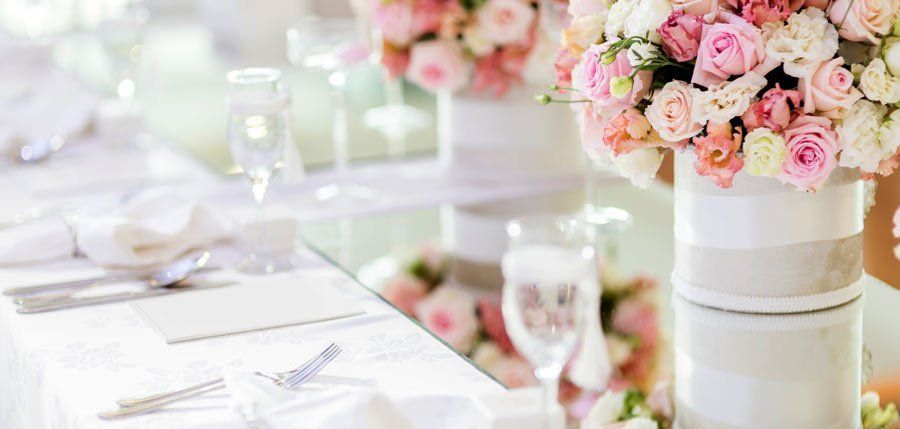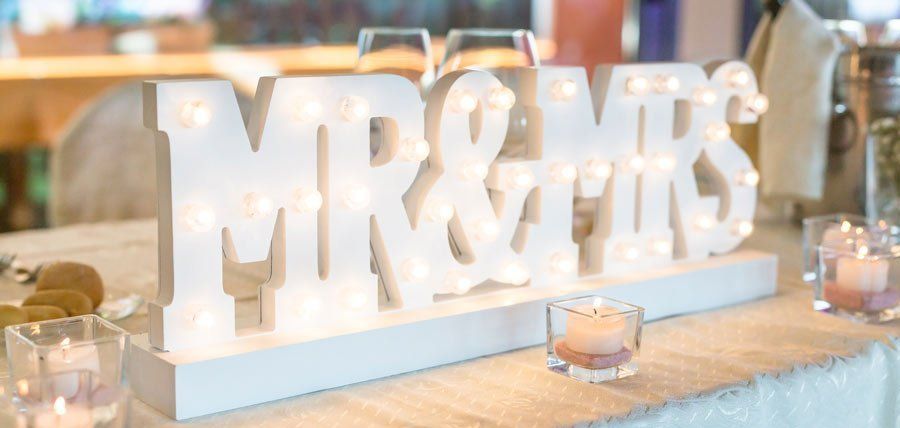THE ULTIMATE LIST OF WEDDING SITE VISIT QUESTIONS
- By Josie Broders
- •
- 08 Feb, 2018

Here is a list of wedding site visit questions you should be armed with at any venue, whether you choose The Beaumont or a different site:
1. HOW MANY HOURS ARE INCLUDED IN THE RENTAL?
The average hours needed are two hours for load-in, and one hour for load-out. Make sure that the remaining hours are enough for your event, and if not, find out how much it will cost to add hours (if the venue offers that option). The average venue rental is eight hours (three hours for load-in/load-out and five for the event).
Side note: Assume that people will arrive for the ceremony thirty minutes prior to the invite time (the time listed on your invitation). Therefore, load-in needs to begin two hours before guest arrival, not the invite time.
2. IS A CEREMONY REHEARSAL INCLUDED?
If so, how long is the rehearsal, when does it usually take place, and how far in advance can you book the time?
3. DISCUSS LOAD-IN AND LOAD-OUT.
Is there a loading dock? An elevator? Ask if there are any specific difficulties or challenges at this venue. Sometimes the building is old and has a tiny elevator, meaning load-in takes a lot longer. Sometimes there isn’t one at all, so the rentals company will charge more to carry things up and down stairs.
4. WHERE ARE THE ENTRANCES AND COAT CHECK?
If your wedding is during a cold or rainy season, do they have a built-in area for a coat check or do they provide coat racks? Also consider where guests enter—some venues have multiple entrances and you may prefer one over the other. Some venues might also have security concerns (ask about whether a security guard is required, recommended, and included in the rental fee). This is also where you want to consider accessibility issues—if you have older guests or guests with disabilities, will they have any trouble entering and maneuvering around the facility? Is there an alternate entrance for those guests, if necessary?
5. WHAT SORT OF LIGHTING IS INCLUDED IN THE VENUE?
Is it dimmable? (Very important! Romantic and dim lighting: GOOD. Fluorescent, corporate lighting: BAD.) Lighting is often forgotten since most site visits are during the day, but many events are in the evening. Or on the flip side, do you need to bring in additional lighting?
6. ASK ABOUT ELECTRICITY?
Vendors often pull a lot of power from the building. Make sure you have a sense of whether outlets are scarce or if there’s plenty of power to go around. It’s also helpful to note where the outlets are located to help you later determine your layout (for example, the photo booth can go in that corner, but only if they provide a ten foot extension cord).
7. WHERE ARE RESTROOMS LOCATED?
Are they easily accessible or do guests need to use stairs or an elevator to reach them? Are they wheelchair accessible?
8. WHERE DOES THE CATERER SET-UP?
Some non-traditional venues that have been turned into wedding venues don’t have a catering kitchen. Make sure you’re okay with the location, setup, and logistics. Sometimes choosing a venue that has on-site catering services will have benefits that other venues can’t offer.
9. ARE THERE ALCOHOL RESTRICTIONS?
Some venues don’t allow red wine or dark liquor. Others require special permits. Still others will allow you to provide your own alcohol as long as it’s served by the venue staff, while others won’t allow it at all.
10. ARE THERE DECOR RESTRICTIONS?
Lots of venues don’t allow confetti or other small items to be thrown. Others have open flame and candle restrictions, as well as sparkler restrictions. If these things matter to you (if you are dying to do that sparkler exit), best to know now and let that inform your final decision.
11. ARE THERE VOLUME RESTRICTIONS?
Some venues, especially outdoor ones, have restrictions on what can and can’t be played at certain hours and in certain spaces.
12. DOES THE VENUE EVER DO MORE THAN ONE EVENT ON THE SAME DAY?
If the venue is large and has multiple spaces, or if it’s a non-traditional space such as a theatre, it’s important to know what else, if anything, will be going on in the venue. How will guests know where to go, and how will the venue keep others out of your space? Will you get the attention you need from the venue staff?
13. DOES THE VENUE PROVIDE ANY EQUIPMENT?
Sometimes venues have tables and chairs available to clients, or A/V and lighting equipment. Be sure you SEE the chairs (some of them are hideous… just saying), and ask the venue if they have an equipment inventory list that they can share or email. When you’re going the all-inclusive route, find out what your options for customization are. Many have upgrade options, or simply allow you to tweak existing options.
14. ASK IF THEY HAVE A LIST OF NEARBY HOTELS THAT THEY RECOMMEND AND SHUTTLE SERVICE.
This can help you make those transportation decisions later on, as well as start researching group rates at nearby hotels. Also some venues offer shuttle service from the hotel to the venue!
15. GET A CLEAR PRICE BREAKDOWN AND ASK ABOUT HIDDEN FEES.
While many venues skirt this issue so as to avoid sticker shock and scaring off couples, they also know exactly how much it costs to have a wedding at their site. You’re entitled to know what the bottom line is BEFORE signing a contract and paying that deposit. Also ask about any hidden fees that might be lurking about. Venues have been known to try to tack on extra fees once you’ve signed a contract, like for moving existing furniture or changing the ceremony area set up, or even for having fewer guests than originally planned. Even venues that are not all inclusive can give you clear pricing breakdowns—so ask away!
16. SEE IF YOU CAN GET A SAMPLE CONTRACT AND BE SURE IT INCLUDES THEIR CANCELLATION POLICY.
In general, no one loves a contract. It’s a lot of words and frankly boring. But when it comes to weddings and venues, it’s truly in your best interest to really, really, really read through it. It’s not fun to think about, but wedding cancellations can and do happen. Make sure the contract is clear on that issue and that you’re comfortable with their language. Also, keep in mind that canceling doesn’t just mean if YOU have to cancel. Find out what protections you have if say, the venue is damaged prior to your wedding or they cancel on you for some other reason.

